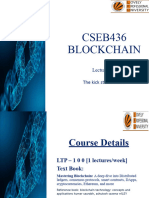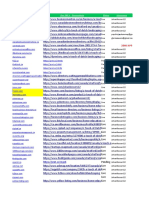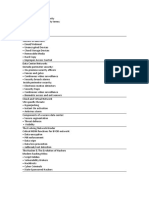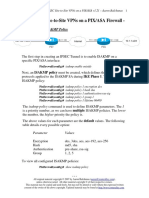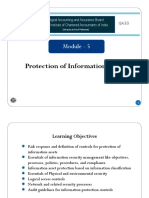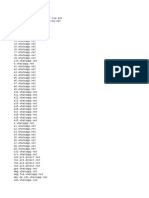0% found this document useful (0 votes)
16 views3 pagesBCS Syllabus
The document outlines a course on Blockchain Technology (FIN3101) with a focus on concepts such as decentralization, cryptocurrency, smart contracts, and decentralized finance. It includes a detailed syllabus covering topics like Bitcoin, smart contracts, NFTs, and Web 3.0, along with practical lab sessions for hands-on experience. The course aims to equip graduates with a comprehensive understanding of blockchain technology and its applications.
Uploaded by
Stu udyCopyright
© © All Rights Reserved
We take content rights seriously. If you suspect this is your content, claim it here.
Available Formats
Download as PDF, TXT or read online on Scribd
0% found this document useful (0 votes)
16 views3 pagesBCS Syllabus
The document outlines a course on Blockchain Technology (FIN3101) with a focus on concepts such as decentralization, cryptocurrency, smart contracts, and decentralized finance. It includes a detailed syllabus covering topics like Bitcoin, smart contracts, NFTs, and Web 3.0, along with practical lab sessions for hands-on experience. The course aims to equip graduates with a comprehensive understanding of blockchain technology and its applications.
Uploaded by
Stu udyCopyright
© © All Rights Reserved
We take content rights seriously. If you suspect this is your content, claim it here.
Available Formats
Download as PDF, TXT or read online on Scribd
/ 3














